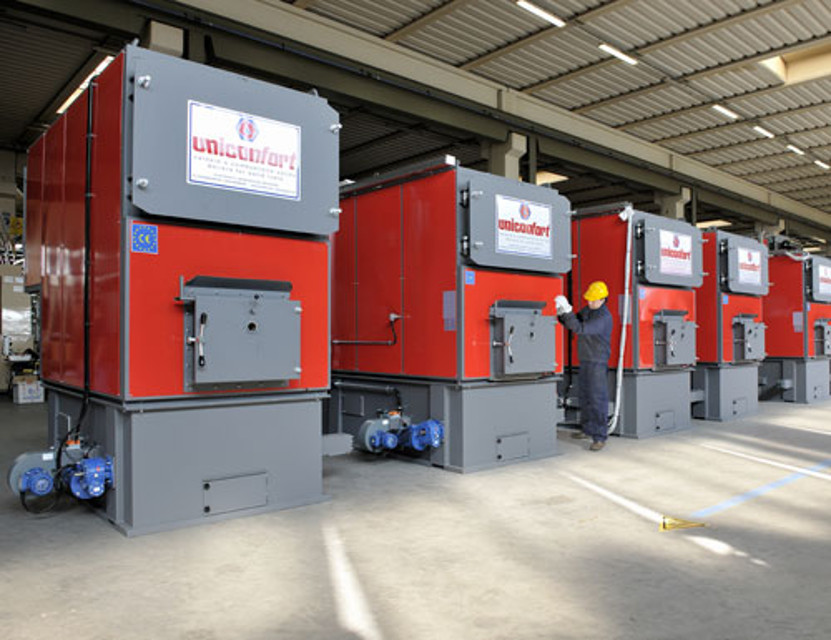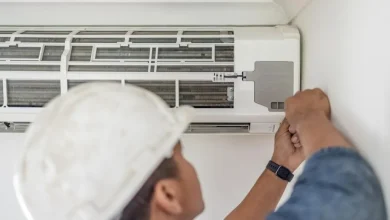Understanding Biomass Boilers: A Comprehensive Guide to What They Are, How They Work, and Their Benefits

What is a Biomass Boiler?
A biomass boiler is an innovative heating system that uses organic materials to generate heat for domestic and commercial properties. Unlike traditional boilers that rely on fossil fuels such as gas or oil, biomass boilers use renewable energy sources, primarily plant-based materials. These systems are gaining popularity due to their sustainability and lower environmental impact, making them an attractive option for eco-conscious homeowners and businesses.
Biomass boilers work by burning organic matter to produce heat, which is then used to warm water or air, depending on the specific application. The most commonly used biomass fuels include wood pellets, chips, and logs. These fuels are considered carbon-neutral since they absorb as much carbon dioxide during their growth as they release when burned, thereby not contributing additional CO2 to the atmosphere.
The adoption of biomass boilers aligns with global efforts to reduce carbon emissions and promote cleaner energy solutions. By choosing a biomass boiler, you contribute to a sustainable future and benefit from a reliable and efficient heating system. This guide delves deeper into how these boilers work, their benefits, and considerations to bear in mind.
How Do Biomass Boilers Work?
Biomass boilers operate through a relatively straightforward process. The system begins with the loading of biomass fuel into the boiler’s combustion chamber. Once ignited, the fuel burns, producing heat. This heat is then transferred to a heat exchanger, which subsequently heats water or air that circulates through your heating system.
The efficiency of biomass boilers is notably high, often exceeding 90%. This efficiency is partly due to the advanced technology used in modern boilers, including automated feeding systems and precise temperature controls. These features ensure optimal combustion and energy use, reducing waste and enhancing performance.
Moreover, many biomass boilers come equipped with sophisticated control systems that allow you to monitor and adjust settings remotely. This feature provides convenience and flexibility, ensuring that your heating needs are met efficiently. The integration of such technology highlights the versatility and modernity of biomass boilers, making them a viable alternative to traditional heating systems.
What Kind of Fuel Does a Biomass Boiler Use?
Biomass boilers predominantly use organic materials known as biomass fuels. These can be categorized into three main types:
- Wood Pellets: Compressed sawdust or wood shavings, which are highly efficient and have low moisture content.
- Wood Chips: Larger pieces of wood, often from forestry residues or waste wood.
- Logs: Traditional firewood, which requires manual loading but is readily available.
Each type has its advantages and limitations, with wood pellets being the most efficient and easy to store, while logs are generally more cost-effective but require more manual handling. The choice of fuel often depends on availability, cost, and the specific requirements of your biomass boiler.
It’s important to ensure that the fuel used is sourced sustainably to maintain the environmental benefits of using a biomass boiler. Certified suppliers adhering to sustainability standards provide assurance that the biomass is harvested responsibly, minimizing ecological impact.
Advantages of Biomass Boilers
Opting for a biomass boiler offers numerous benefits, both environmentally and economically. Here are some key advantages:
- Sustainability: Biomass is a renewable energy source, reducing reliance on finite fossil fuels and helping to lower carbon footprints.
- Cost Savings: Although initial investment can be higher, biomass boilers can lead to significant savings on energy bills in the long run due to the lower cost of biomass fuel.
- Government Incentives: In many regions, you may qualify for grants or subsidies for installing a biomass boiler, making them more financially accessible.
Additionally, biomass boilers provide energy security by reducing dependence on imported fuels. They can also contribute to local economies by supporting the biomass supply chain, from forestry to fuel production.
Disadvantages of Biomass Boilers
While biomass boilers have distinct benefits, it’s crucial to consider the potential downsides:
- Space Requirement: Biomass boilers and their fuel storage require substantial space, which may not be feasible for all properties.
- Initial Costs: The upfront cost of purchasing and installing a biomass boiler can be significantly higher than conventional systems.
- Maintenance: Regular maintenance is necessary to ensure efficient operation, including cleaning and ash removal.
Moreover, the availability of biomass fuel can vary by location, influencing cost and supply reliability. It’s essential to weigh these disadvantages against the benefits to determine if a biomass boiler is the right choice for your needs.
Installation and Maintenance of Biomass Boilers
Installing a biomass boiler involves several steps, including site assessment, choosing the right system, and ensuring compliance with local regulations. It’s crucial to work with experienced professionals who can guide you through the process and ensure proper installation.
Maintenance is another critical aspect, requiring regular cleaning and inspection to maintain efficiency and prolong the boiler’s lifespan. Tasks include ash removal, chimney sweeping, and checking for any mechanical issues. A well-maintained biomass boiler can provide reliable service for 15-20 years or more.
Regular servicing by qualified technicians can prevent potential problems and ensure that your system operates safely and efficiently. Many suppliers offer maintenance packages, providing peace of mind and convenience for biomass boiler owners.
Cost Considerations for Biomass Boilers
The cost of a biomass boiler varies based on size, type, and installation specifics. While the initial expenditure is higher than traditional systems, several factors can offset these costs:
- Fuel Savings: Lower running costs due to cheaper biomass fuel.
- Incentives: Government schemes like the Renewable Heat Incentive (RHI) can provide financial support.
- Long-Term Investment: Over time, the savings on energy bills can compensate for the higher initial investment.
It’s advisable to conduct a cost-benefit analysis considering your specific circumstances. Consulting with experts can provide tailored advice and help you make an informed decision about investing in a biomass boiler.
Environmental Impact of Biomass Boilers
Biomass boilers offer a greener alternative to fossil fuel-based systems. By choosing biomass, you contribute to reducing greenhouse gas emissions and promoting sustainable energy use. Here’s how biomass boilers impact the environment:
- Carbon Neutrality: Biomass fuels absorb CO2 during growth, offsetting emissions when burnt.
- Reduced Air Pollution: Modern biomass boilers have advanced filtration systems to minimize particulate emissions.
- Sustainable Resource: When sourced responsibly, biomass helps maintain ecological balance.
However, it’s essential to source biomass sustainably and ensure that the supply chain adheres to environmental standards to maximize these benefits. By doing so, you play a part in fostering a healthier planet while enjoying the practical benefits of a biomass boiler.
Conclusion
In conclusion, biomass boilers represent a promising solution for those looking to reduce their carbon footprint and embrace sustainable energy. While they come with certain challenges, the environmental and economic advantages make them a compelling option. As you consider your heating needs, weigh the benefits against the potential drawbacks and explore available incentives that could make a biomass boiler a viable choice for your property.
If you’re keen on transitioning to a more sustainable heating system, now is the perfect time to act. Contact a local expert – Proadvance from Reading, Berkshire today to explore how a biomass boiler can meet your needs and contribute to a cleaner, greener future.




